Like great copywriting, great lyrics will make you pay attention.
Come mothers and fathers throughout the land,
And don’t criticize what you can’t understand.
Your sons and your daughters are beyond your command.
Your old road is rapidly aging.
Please get out of the new one if you can’t lend your hand
For the times they are a-changin’
That’s from The Times They Are a Changin’ by Bob Dylan — whose lyrics were and are so powerful that he was awarded the Nobel Prize for Literature.
Interesting conversation starter about that lyric:
He placed mothers ahead of fathers. Keep in mind that this song came out in 1965 when society was still patriarchal. So to put mothers before fathers was a big deal, especially for a generation that had spent the past 20 years protecting an American ideal that was being questioned by a guy with a guitar who couldn’t sing.
But then in the next line he refers to sons and daughters, reversing the gender order. Why do this? We’d argue that “your daughters and sons are beyond your command” would have been phonetically better because it has fewer syllables to trip up on.
So was Dylan saying that there was to be a temporary redefining of roles in society and then it was going to go back to normal? Or was he saying that social roles won’t change but need to be reconsidered by the elder generation?
These are the types of conversations good lyrics can evoke. And unfortunately, we’re getting fewer and fewer great lyrics.
We’ve felt this way anecdotally for some time, Something feels different about modern music — it’s lacking depth. But is it really? Musical historian Shane Snow looked into it empirically.
Snow analyzed a cross-section of North American songs from 1965, 1975, 1985, 1995, 2005 and 2015 to see what words were most used in lyrics. Then, he plotted those words into six word bubbles:
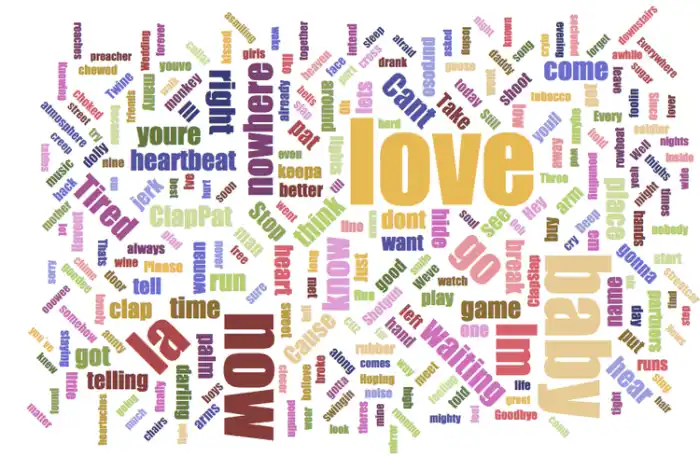
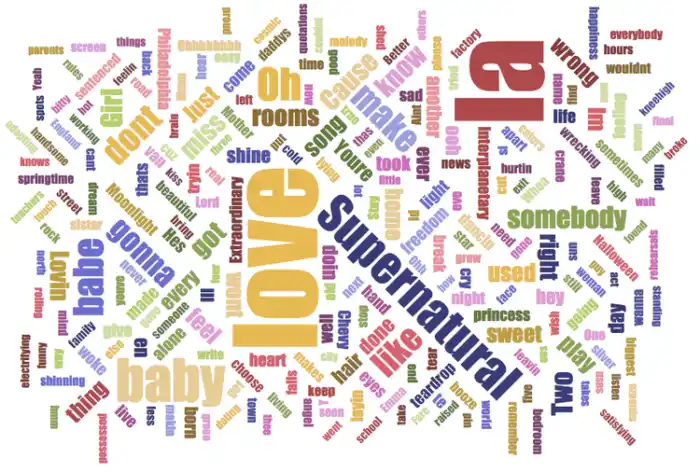
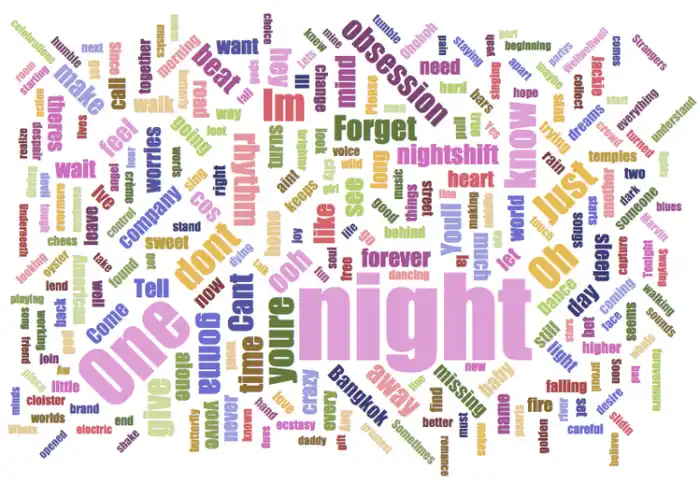
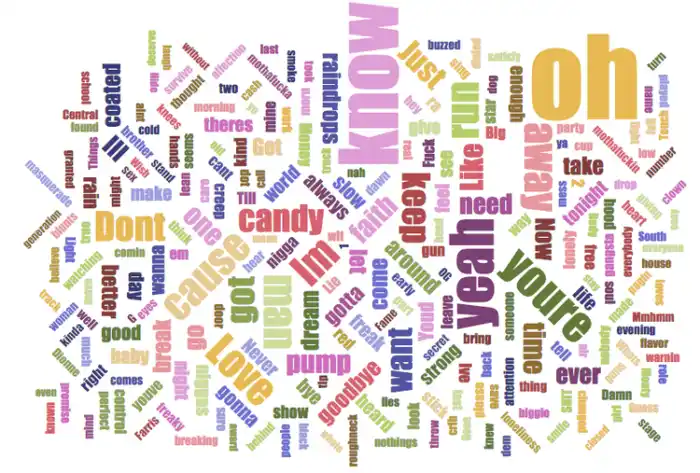
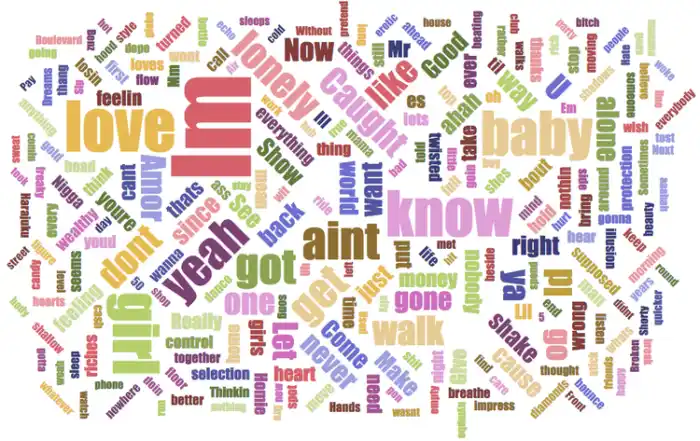
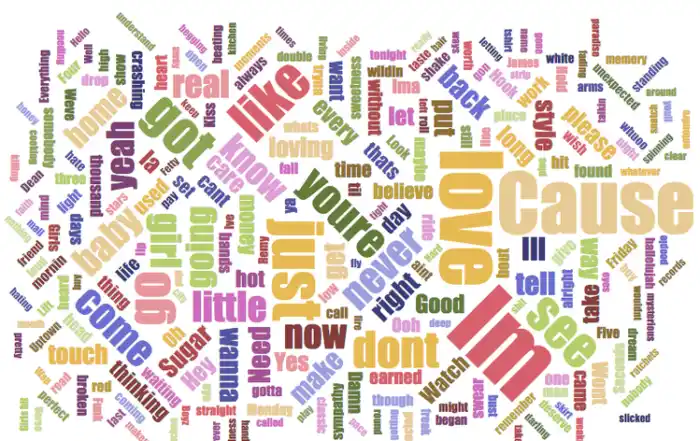
You’ll notice that “love” appears prominently across the board (no surprise there). But what we found interesting were the words that stood out as unique to the era.
In 1965, it was “nowhere,” which made sense given the uncertainty of the times and what was the beginning of the counter culture movement.
1975’s was “supernatural,” which, given the drug-induced haze society was in, and the post-1960’s answers everyone was looking for, made sense.
“Obsession” stood out in 1985, and that seems to be in lock-step with the over-indulgence of the 1980s.
Then, something interesting happened in 1995. Lyrics moved away from “concepts” and towards “utterances”: banal words that didn’t reflect anything except the vapidness of a mass-produced, over-exposed industry that was pumping out music for money instead of art. “Candy” and “raindrops.” Seriously?
2005 was more of the same, except we started to see the rise of words like “ain’t” and “yeah.” And by 2015 lyrics were completely devoid of concept. Not one word in that bubble is even close to statement-worthy.
We wonder if, by 2025, the pendulum will have swung back a bit. It should, given the state of the world today. If there was ever a time for artists to speak their minds, this is it. But with far too many places to consume music and way too much access for vapid lyricists to get their music produced, would we even be able to find it?
Only time will tell.
